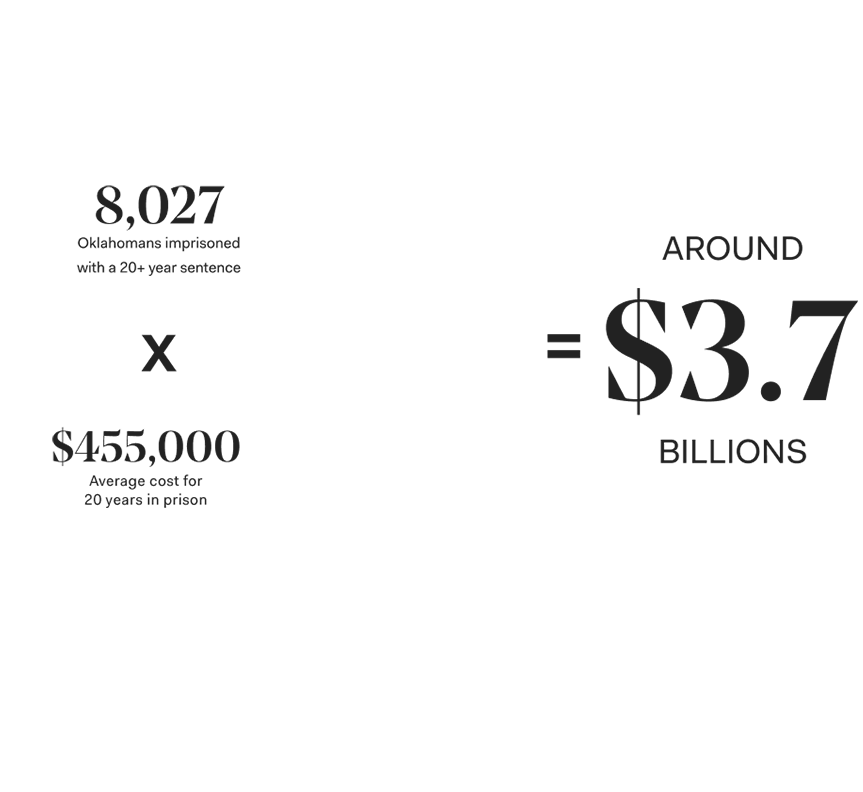Chapter 2
Economy
Felony Records and Long Sentences Hurt the Economy
Oklahoma’s criminal justice system has constricted the state’s economic growth by removing people from the workforce, subjecting them to harsh sentences, and then imposing significant barriers to their return to work.
Oklahomans are Locked Out of the Workforce
By sending too many people to prison and creating obstacles to work when they return home, the state’s criminal justice system is keeping the economy from reaching its true potential.
In Oklahoma, an estimated 1.2 million people (more than 1 in 4 Oklahomans) have a felony or misdemeanor court charge or arrest on their record, about half of whom have at least one conviction. Of those, an estimated 240,000 people living in the state have a felony conviction— which can be both costly and requires years to expunge — and around 90,000 have been to prison.


Long Sentences Drive the High Incarceration Rate
Oklahoma's harsh sentencing laws and limited opportunities for release worsen economic outcomes for people across the state and don’t make Oklahoma safer.
In FY 2021, the average sentence in state prisons was 19.5 years and 8,027 Oklahomans had a prison sentence of 20 years or more. Black Oklahomans account for 32% of all people serving sentences of at least 20 years despite making up just over 7% of the state population.

Incarceration Drains State and Local Resources
Oklahoma’s long sentences take an incredible amount of tax dollars to sustain. Oklahoma spends $552 million — or more than half a billion dollars annually — to run its prison system, and this high cost does not make Oklahoma safer.

